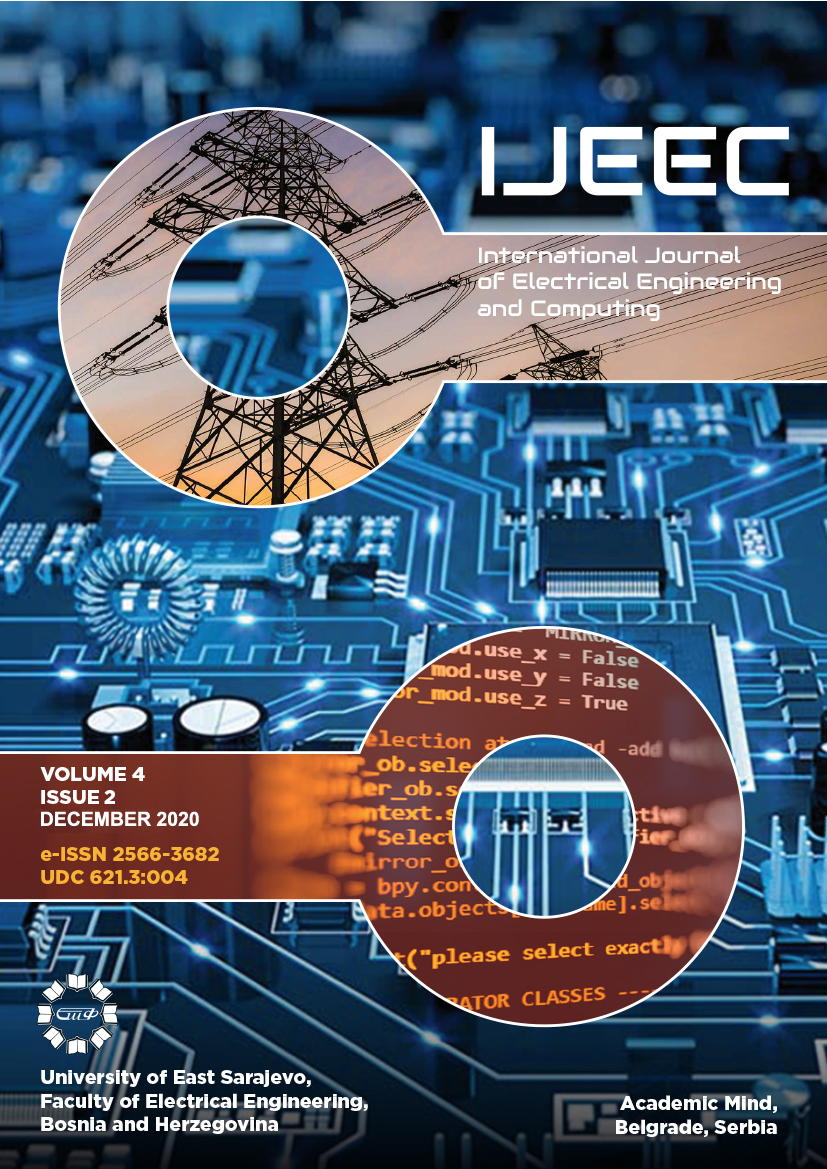A Comparison of 5G Channel Coding Techniques
DOI:
https://doi.org/10.7251/IJEEC2002071MAbstract
The rapid, reliable, and secure data transmission in everyday life and numerous applications is one of the crucial demands of
modern society. Mobile wireless communications have advanced significantly in recent decades. From the first (1G) to fifth-generation
(5G) of mobile communications, the realization of fast and secure communication has always been challenging as data transfer happens
in an imperfect channel environment where noise due to amplification, distortion, and other impairments is present. Channel coding is
key to establishing fast communication with low error probability, implying that choosing the proper channel coding scheme is a
challenging and crucial task. Higher flexibility and reliability, and low computational complexity, latency, and costs are desired coding
technique characteristics. This paper focuses on two 5G channel coding techniques, Low-Density Parity-Check (LDPC) and Polar codes.
These codes have been examined in the case of variable message sizes and for a wide range of code rates. In addition, different Polar
decoding algorithms have been investigated. Simulations results have confirmed that there is no single channel coding scheme able to
meet all 5G requirements as well as the superiorities of LDPC codes in case of long messages and Polar codes for short messages. The
ability to support a wide range of code lengths and code rates and excellent Bit Error Rate (BER) performances, justify the utilization of
LDPC and Polar codes in 5G communication systems.

